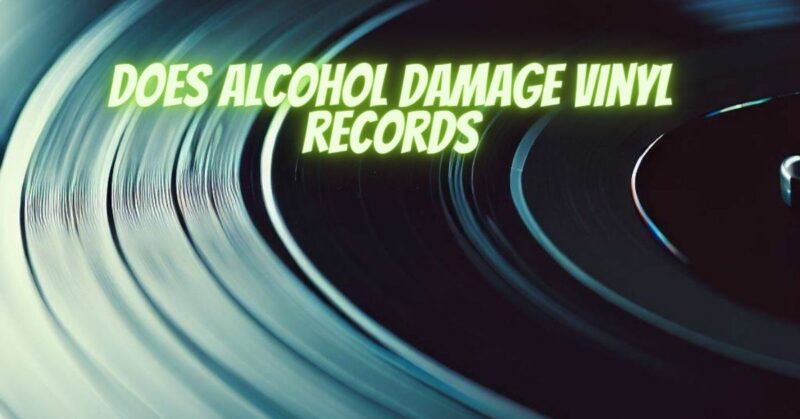Vinyl records have enjoyed a resurgence in popularity, capturing the hearts of audiophiles and music enthusiasts around the world. Maintaining and preserving these cherished analog gems is crucial to ensure they continue to deliver the rich and warm sound they are known for. While some collectors consider using alcohol as a cleaning agent for vinyl records, there are concerns about whether alcohol can cause damage. In this article, we will explore the effects of alcohol on vinyl records and provide guidance on its safe usage in record cleaning.
Understanding Vinyl Record Cleaning
Cleaning vinyl records is an essential part of record maintenance. Records can accumulate dust, dirt, grime, and even stubborn stains over time, which can degrade sound quality and result in unwanted pops and crackles during playback. Effective cleaning methods aim to remove these contaminants from the record’s surface without causing harm to the delicate grooves.
The Effects of Alcohol on Vinyl Records:
Alcohol, particularly isopropyl alcohol (commonly known as rubbing alcohol), is often considered for cleaning vinyl records due to its cleaning properties and evaporation characteristics. However, it is essential to understand both the potential benefits and drawbacks of using alcohol:
Benefits of Using Alcohol:
- Effective Cleaning: Alcohol can effectively dissolve oils, greases, and some types of contaminants, making it useful for removing fingerprints, dirt, and grime from records.
- Quick Evaporation: Alcohol evaporates rapidly, leaving minimal moisture behind on the record’s surface. This can be advantageous in preventing damage associated with prolonged exposure to moisture.
Drawbacks and Precautions:
- Potential Damage: Alcohol, especially if used in high concentrations, can pose risks to vinyl records. Its chemical composition can soften and damage the vinyl material over time, potentially affecting sound quality.
- Residue Buildup: Alcohol can leave behind a residue if not wiped away thoroughly. Residue can affect playback quality and attract dust and debris over time.
- Stain Compatibility: Alcohol may not effectively remove all types of stains or contaminants found on vinyl records.
Safe Vinyl Record Cleaning with Alcohol:
If you choose to use alcohol for vinyl record cleaning, follow these precautions to minimize the risk of damage:
- Dilute Alcohol: Use isopropyl alcohol with a concentration of 70% or lower. Do not use undiluted alcohol on records, as it can be too harsh.
- Prepare a Cleaning Solution: Mix one part isopropyl alcohol with ten parts distilled water to create a diluted cleaning solution.
- Apply Sparingly: Moisten a clean, soft microfiber cloth or a record cleaning brush with the diluted alcohol solution. Apply only a small amount to the cloth or brush, avoiding excessive moisture.
- Clean Gently: Using light pressure, gently wipe the record’s surface in a circular motion, moving from the center outward. Be careful not to touch the grooves with your fingers.
- Rinse and Dry: After cleaning, rinse the record with distilled water to remove any alcohol residue. Ensure the record is completely dry before storing it.
- Inspect the Results: Examine the cleaned record under good lighting to ensure that the alcohol has effectively removed any stains or contaminants.
Alternative Cleaning Methods:
While alcohol can be a viable option for cleaning vinyl records when used with caution, there are specialized vinyl record cleaning solutions and cleaning machines designed specifically for record care. These alternatives are often preferred by collectors for their effectiveness and ease of use.
In conclusion, alcohol can be used as a cleaning agent for vinyl records, but it should be used cautiously and in a diluted form to minimize potential damage. Proper care and maintenance will help ensure that your vinyl records continue to provide you with the best possible listening experience for years to come.


